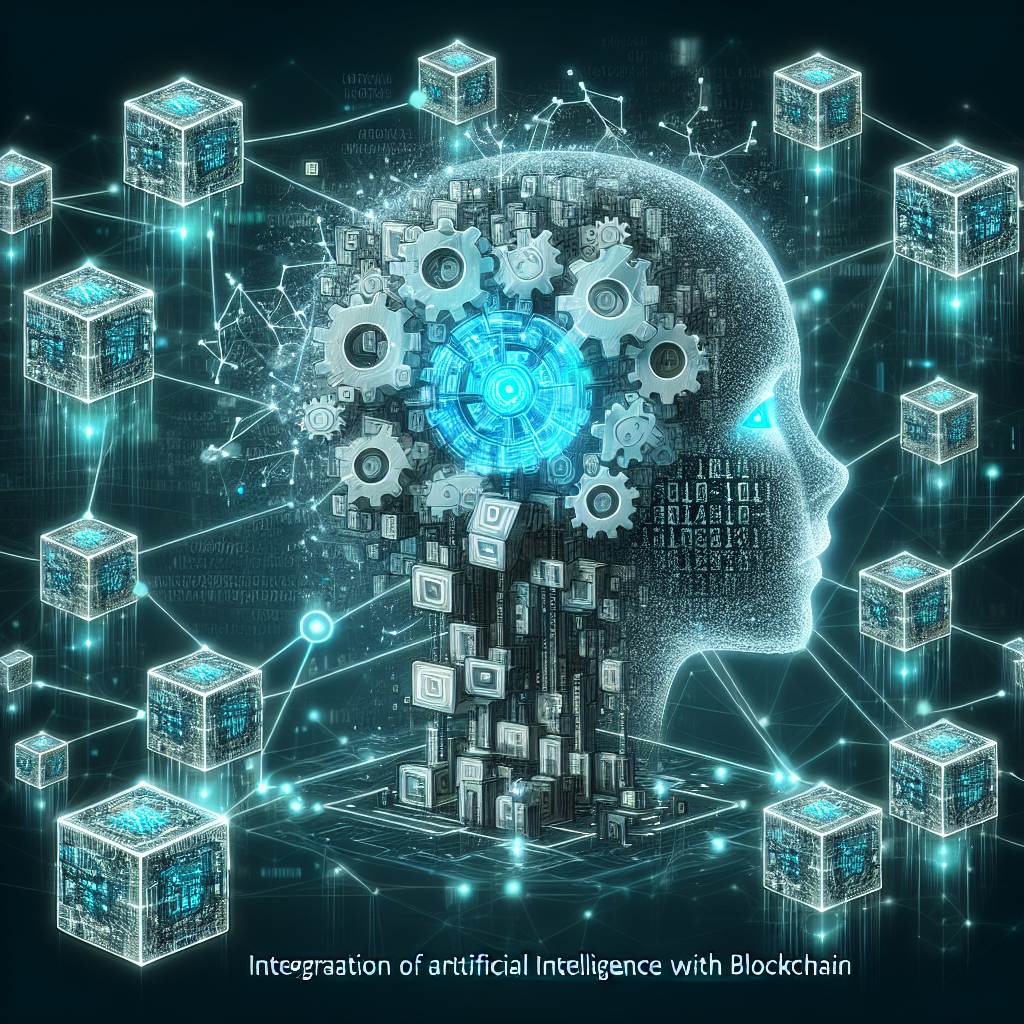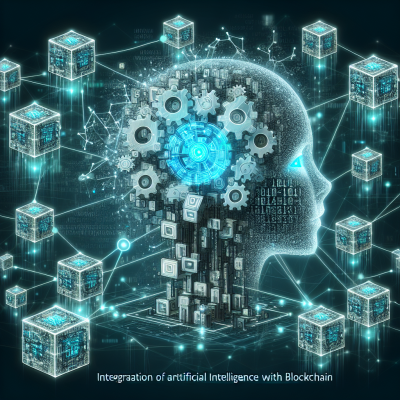
Introduction to AI in Blockchain
Artificial Intelligence (AI) and Blockchain are two of the most transformative technologies in the modern digital era. Individually, both have made a groundbreaking impact across multiple industries. However, when combined, the synergy created by these tech giants opens up a world of innovative possibilities. AI enhances decision-making through data analysis, while Blockchain ensures immutable and secure data handling. Together, they provide a robust infrastructure with applications ranging from finance and healthcare to supply chain management and beyond.
Why Integrate AI with Blockchain?
Before diving deeper into the uses of AI in blockchain, it’s crucial to understand why these technologies complement each other so effectively.
- Enhanced Data Security: Blockchain’s immutable ledger ensures the security of data, while AI provides intelligent systems to analyze and utilize data effectively.
- Improved Efficiency: AI optimizes processes, and blockchain offers transparency in transactions, resulting in faster and more accurate decision-making.
- Scalable Automation: The union enables smarter contracts that operate without human intervention, while AI models adapt in real time to changing needs.
Combining these technologies paves the way for a more secure, efficient, and trustworthy digital future.
Key Applications of AI in Blockchain
The integration of AI and blockchain is not just theoretical—it is actively fostering innovation across several industries. Here’s how:
1. Fraud Detection and Risk Management
One of the primary applications of AI in blockchain is in fraud detection and risk management. AI models analyze blockchain’s transparent ledger, identifying unusual patterns that indicate fraudulent activities or potential security threats. This intelligence ensures quicker responses to threat warnings, making systems more resilient.
2. Data Monetization
AI-powered analytics combined with blockchain technology enable businesses to monetize data securely. Blockchain ensures the traceability of data, while AI uncovers its value by analyzing datasets and applying predictive algorithms. Companies and individuals can exchange data confidently, knowing the provenance is guaranteed by blockchain.
3. Supply Chain Optimization
For industries reliant on supply chain efficiency, AI and blockchain together offer unmatched transparency and predictive capabilities. Blockchain records every transaction in real time, while AI analyzes supply chain data to predict disruptions, reduce waste, and deliver optimal routes for logistics.
4. Smart Contracts
Smart contracts—self-executing agreements stored on a blockchain—are getting a much-needed intelligence boost with AI. AI algorithms enable these contracts to adapt to unforeseen conditions or make real-time decisions, ensuring a more robust automation system across industries.
Benefits of Merging AI and Blockchain
The combination of AI and blockchain is far more powerful than the sum of its parts. Here are some benefits that illustrate why this pairing is game-changing.
1. Enhanced Data Integrity
Blockchain’s tamper-proof ledger maintains data integrity, while AI verifies, processes, and learns from that data, ensuring reliable and actionable insights.
2. Trust and Transparency
Blockchain eliminates trust barriers by making data transparent, while AI ensures that only the most pertinent information is presented to stakeholders, fostering transparency and accountability.
3. Decentralized Intelligence
Traditional AI systems depend heavily on centralized models. Blockchain decentralizes intelligence by sharing data securely on distributed ledgers, ensuring no single point of failure.
Challenges of Integrating AI with Blockchain
As promising as the combination of AI and blockchain is, there are hurdles to overcome:
- Scalability: Blockchain networks often struggle with transaction speed, which could bottleneck AI’s need for real-time data processing.
- Data Privacy: While blockchain is transparent, AI needs significant amounts of data for training, which raises concerns over privacy and compliance with data regulations.
- Complexity: Merging the two technologies requires extensive technical expertise and significant computational resources, which can be costly.
Despite these challenges, advancements in technology and innovative solutions are gradually mitigating these issues, making the integration more seamless and scalable.
Future of AI in Blockchain
The roadmap for AI and blockchain integration is brimming with opportunities. As technologies evolve, we will witness more sophisticated use cases, from autonomous cryptocurrencies to AI-guided decentralized finance (DeFi) systems. Businesses that adopt these technologies early stand to gain a competitive edge in their respective industries.
Moreover, the increased collaboration between governments and tech leaders will likely overcome regulatory challenges, enabling wider adoption.
Conclusion
The integration of AI in blockchain is revolutionizing industries, creating a more efficient, secure, and data-driven ecosystem. While challenges remain, the potential benefits far outweigh the risks, and ongoing innovation will bridge the gaps. This combined force of AI and blockchain is not merely a trend but a foundational shift in technology that businesses can leverage to drive future growth.
The possibilities are endless, and companies venturing into this technology today will shape the future. Are you ready to embrace this paradigm shift?



Leave a Reply